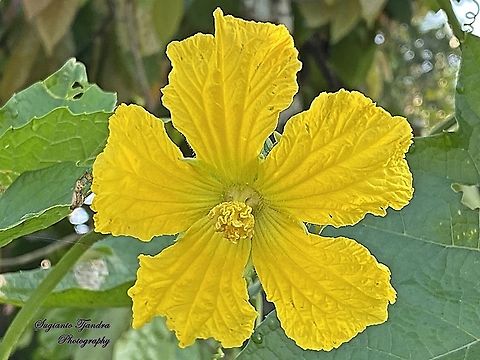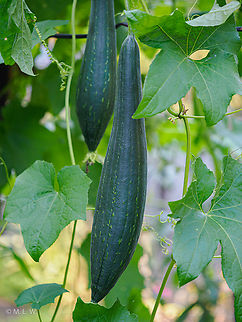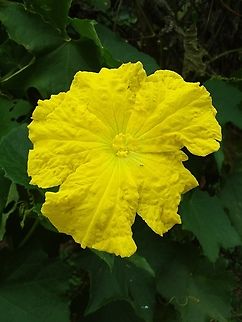
Appearance
The fruit, approximately 30 cm long, resembles a cucumber in shape and size. Owing to its striking yellow flowers, "Luffa cylindrica" is occasionally grown as an ornamental."Luffa cylindrica" is best grown with a trellis support. It requires lots of heat and lots of water to thrive.

Naming
The synonymous botanical specific epithet ""aegyptiaca"" was given to this plant in the 16th century when European botanists were introduced to the plant from its cultivation in Egypt. In the European botanical literature, the plant was first described by Johann Veslingius in 1638, who named it "Egyptian cucumber". Veslingius also introduced the name "Luffa".
Uses
The young fruit is eaten as a vegetable and is commonly grown for that purpose in tropical Asia. Unlike the young fruit, the fully ripened fruit is strongly fibrous and inedible, and is used to make scrubbing bath sponges. Due to the use as a scrubbing sponge, it is also known by the common names dishrag gourd, rag gourd, sponge gourd, and vegetable-sponge. It is also called smooth luffa to distinguish it from the ridged luffa, which is used for the same purposes.An edible oil can be extracted from the seeds. The resulting oil meal can be fed to rabbits and catfish, or used as a fertilizer.
References:
Some text fragments are auto parsed from Wikipedia.